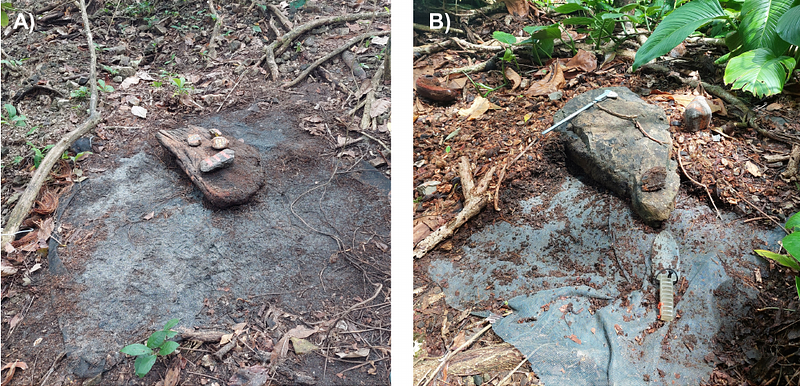Development and social dynamics of stone tool use in white-faced capuchin monkeys

Development and social dynamics of stone tool use in white-faced capuchin monkeys
Goldsborough, Z.; Carlson, M. K. W.; Reetz, L.; Crofoot, M. C.; Barrett, B. J.
AbstractPercussive tool use for extractive foraging allows animals to access otherwise inaccessible resources and forage more efficiently, with potentially important implications for their fitness. The development of tool use proficiency has been well-documented in nut-cracking chimpanzees and robust capuchins, and in shellfish-cracking long-tailed macaques, where mothers and proficient tool users are the most important models. However, little is known about how tool use develops in populations where opportunities for social learning are scarce. White-faced capuchins (Cebus capucinus imitator) on Jicaron Island, Panama, provide a unique case to consider this question: stone tool use is entirely male-biased, meaning juveniles cannot learn from their mothers, and reduced group cohesion further limits social learning opportunities. Here, we investigate the acquisition and development of stone tool proficiency in this population using a year-long dataset from camera traps placed at two experimental anvils. We assess differences in proficiency between age classes, examine the development of tool use proficiency over time, and explore patterns of social attention during tool use. We show that juvenile capuchins are less proficient than subadults and adults, but their proficiency remains stable over the course of one year, suggesting that skill development may require prolonged practice or physical maturation. In contrast to other primates, social learning opportunities on Jicaron appear limited and scrounging is rare, yet we do find robust patterns in social attention when it occurs. Social attention to tool use mostly comes from juveniles too young to use tools themselves, who observe proficient subadults that tolerate scrounging. Our results contribute to the understanding of how complex tool use behaviors are acquired and maintained in primates, highlighting the role of social tolerance in the development of proficiency.